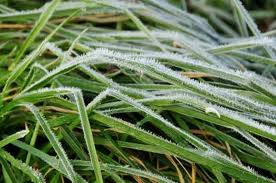 Welcome to the Hessenauer Sprinkler Repair and Irrigation blog and website. We like to provide our online readers with helpful tips and advice concerning sprinkler irrigation and drainage. Today we would like to discuss some issues to consider sprinkler irrigation in the colder months here in Central Florida.
Welcome to the Hessenauer Sprinkler Repair and Irrigation blog and website. We like to provide our online readers with helpful tips and advice concerning sprinkler irrigation and drainage. Today we would like to discuss some issues to consider sprinkler irrigation in the colder months here in Central Florida.
Although the autumn and winter month here in Central Florida are mild, business for sprinkler irrigation does seem to taper off when temperatures drop. We know that the temperatures here in Florida rarely drop below freezing. Regardless, in the unlikely instance that a cold snap hits, it is helpful to be informed on sprinkler irrigation system practices, should the temperatures drop to below freezing.
Some of its components would blow apart when the temperature get low enough to invoke freezing. Although irrigation sprinkler system winterization is not necessary in most of Florida, other parts of the country should observe proper winterization to prevent this.
The components of the sprinkler are vulnerable to freezing because of the material with which they are composed, including copper, PVC and Polyvinyl chloride, or polyethylene.
If you have noticed too late that temperatures are dropping, you could still winterize your system since the soil serves as insulation from frost. The first freezing temperatures of winter are not sufficient enough to harm your sprinkler system. However, winterization must be done immediately to protect the components from damage.
Some damage preventative measures include shut off and drain your backflow, and cover the pump with a blanket to protect it from freezing. Check for leaks the first time you use your irrigation system after a freeze since a cold snap could damage pipes. Make sure your rain sensor is working to assure proper watering schedules.
PVC pipes have a bit of resistance to freezing, but fittings that hold it in place are very vulnerable to cracking into sharp chunks. Polyethylene pipes or commonly called as poly pipes can accommodate the expansion of freezing water, but the fittings like those in PVC pipes, can break apart.
It could be necessary to turn off the controller or timer. Most controllers have a “rain-mode” which simply shuts off the signals to the valves. At this point, the controller continues to keep time, the programming information isn’t lost, and the clock continues to run throughout the winter. The only change is that the valves will not activate.
Drain the pipes. Remove the water from the pipes and sprinklers because it could freeze, expand and break the pipes. There are a few ways to drain the pipes including a manual drain valve, an automatic drain valve or the compressed air blow-out method. Since there could be potential safety risks we recommend contacting your local irrigation specialist for professional winterizing.
Thank you again for visiting the Hessenauer Sprinkler Repair and Irrigation blog and website. If you have sprinkler irrigation issues that need attention in the Central Florida area, do not hesitate to contact us at 407-302-2227 to discuss them today. Come back soon!
